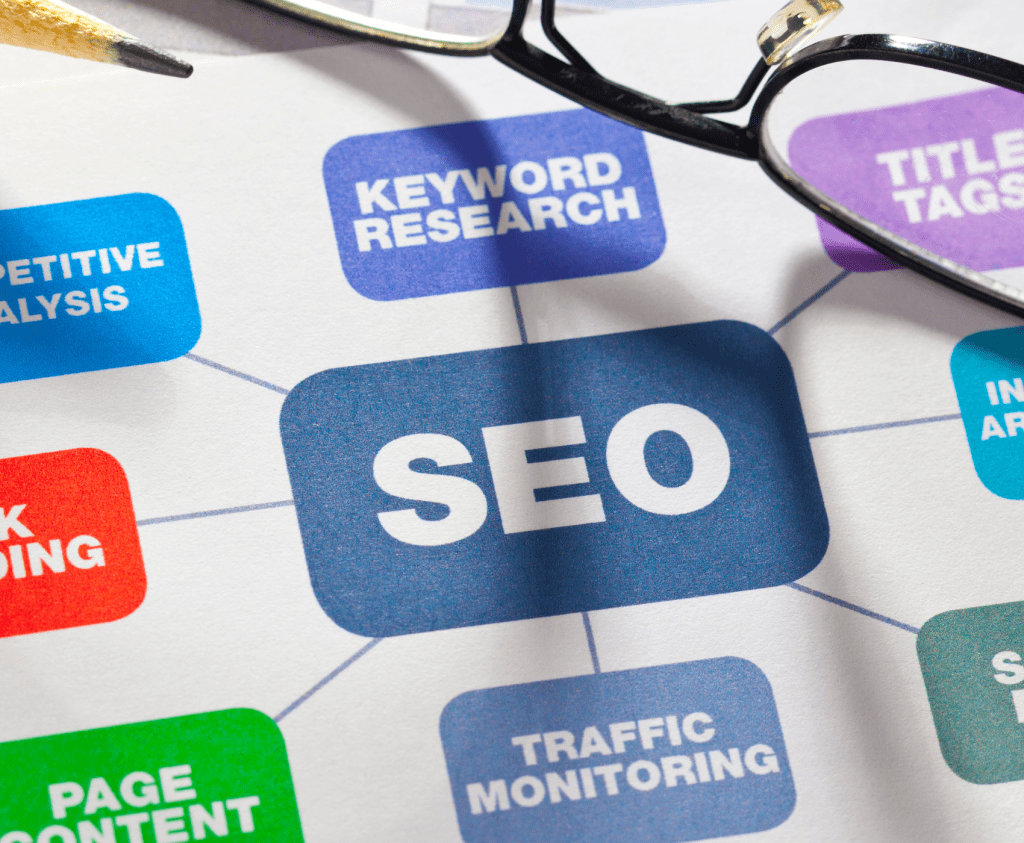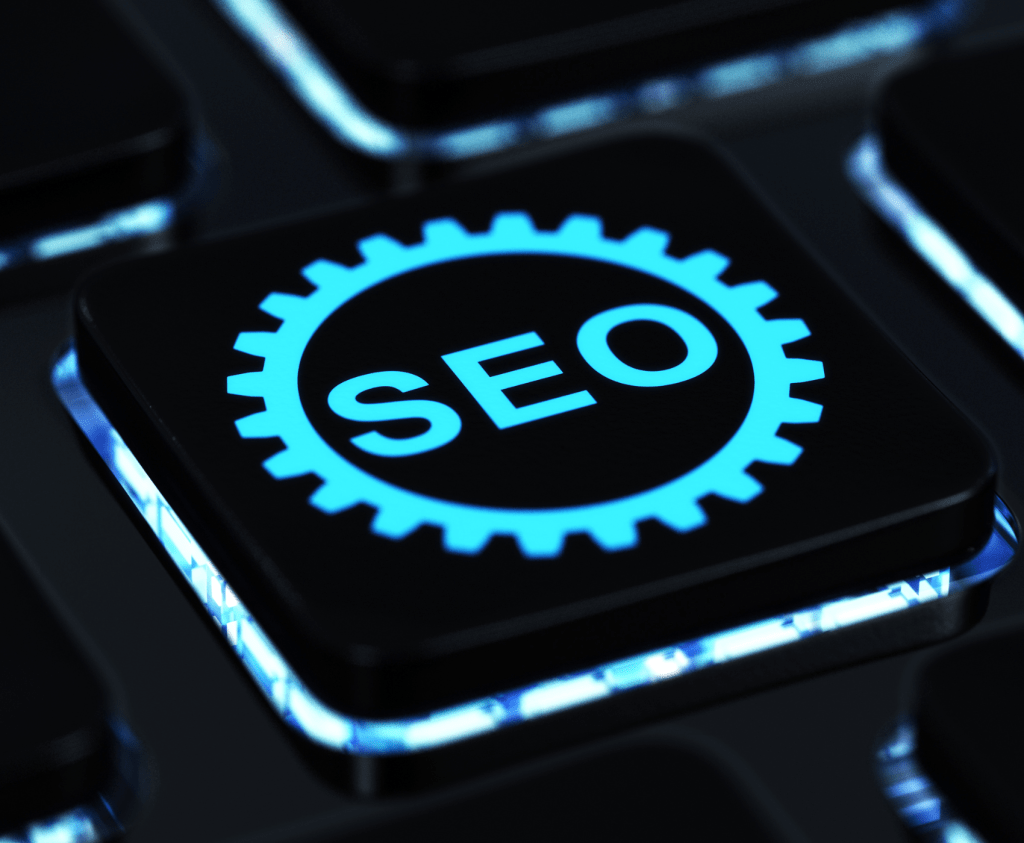What is SEO?
SEO is the process of optimizing a website in order to rank higher in search engine results pages (SERPs).
The goal of SEO is to get your content to rank high on Google so that when someone searches for your keywords, they will find your website.
Types of SEO
Search Engine Optimization (SEO) is a crucial strategy to improve your website’s visibility on search engines like Google. By optimizing your site, you can attract more organic (non-paid) traffic, ultimately leading to higher engagement and conversions. SEO is not a one-size-fits-all approach; it encompasses different types that target specific aspects of your website. Here are the main types of SEO:
1. On-Page SEO
On-page SEO refers to the optimization of individual web pages to rank higher and earn more relevant traffic in search engines. This includes optimizing content, meta tags, headers, images, and internal links. Key elements of on-page SEO include:
- Keyword Optimization: Strategically placing relevant keywords throughout your content.
- Title Tags and Meta Descriptions: Crafting compelling and optimized meta information to improve click-through rates.
- Content Quality: Creating valuable, engaging, and informative content that satisfies search intent.
- URL Structure: Using clean and descriptive URLs to improve user experience and search engine indexing.
2. Off-Page SEO
Off-page SEO focuses on actions taken outside your website that impact your rankings within search engine results. This type of SEO is primarily concerned with building your website’s authority and credibility through backlinks and brand mentions. Important aspects of off-page SEO include:
- Backlink Building: Earning high-quality links from reputable websites to boost your site’s authority.
- Social Media Engagement: Sharing your content on social platforms to increase its visibility and drive traffic.
- Guest Blogging: Publishing articles on other websites to build relationships and acquire backlinks.
3. Technical SEO
Technical SEO involves optimizing your website’s backend to ensure it meets the technical requirements of search engines. This helps search engines crawl, index, and rank your site more efficiently. Key factors include:
- Site Speed: Ensuring your website loads quickly, as page speed is a ranking factor for search engines.
- Mobile-Friendliness: Making sure your website is fully optimized for mobile devices, as mobile usability influences search rankings.
- XML Sitemaps: Creating a well-structured XML sitemap to help search engines discover and index your web pages.
- Structured Data (Schema Markup): Adding structured data to help search engines better understand the content on your pages.
4. Local SEO
Local SEO is targeted towards improving your online presence in local search results. It’s crucial for businesses that have a physical location or serve specific geographic areas. Local SEO focuses on:
- Google My Business Optimization: Ensuring your business information is accurate and optimized for local search.
- Local Keywords: Including city, region, or area-specific keywords to attract local customers.
- NAP Consistency: Ensuring your business name, address, and phone number (NAP) are consistent across all listings and directories.
- Customer Reviews: Encouraging and managing positive reviews on platforms like Google, Yelp, and others.

5. E-Commerce SEO
E-commerce SEO is tailored specifically for online stores to improve product page rankings and drive sales. Optimizing product descriptions, titles, images, and user experience are key areas. E-commerce SEO involves:
- Product Descriptions: Writing unique and detailed product descriptions to attract both customers and search engines.
- Product Page Optimization: Using clear, keyword-optimized titles, meta descriptions, and high-quality images.
- Customer Reviews and Ratings: Featuring product reviews to build trust and boost rankings.
- Category Page SEO: Optimizing category pages with relevant keywords to enhance navigation and SEO.
6. Content SEO
Content SEO focuses on creating high-quality, relevant, and valuable content that answers user queries and attracts organic traffic. The key is to create content that resonates with your target audience while being optimized for search engines. Elements include:
- Blog Posts: Writing informative, engaging blog posts that target specific keywords and user intent.
- Long-Form Content: Publishing in-depth articles that provide thorough answers and insights on complex topics.
- Visual Content: Using images, infographics, and videos to make content more engaging and shareable.
7. Voice Search SEO
With the increasing use of virtual assistants like Siri, Alexa, and Google Assistant, optimizing for voice search has become essential. Voice search SEO involves optimizing content for conversational queries and questions. Key strategies include:
- Question-Based Keywords: Focusing on long-tail keywords in a natural, conversational tone.
- Featured Snippets: Structuring content in a way that can be featured as a snippet in search results.
- Local SEO Integration: Voice search is often used for local queries, so aligning your efforts with local SEO strategies can be highly beneficial.
8. Mobile SEO
As mobile search traffic continues to dominate, mobile SEO focuses on optimizing websites for a seamless mobile experience. Mobile-friendly websites are favored by Google, and it’s critical to ensure your site provides a smooth user experience on all devices. Mobile SEO includes:
- Responsive Design: Ensuring your site adjusts to fit any screen size.
- Fast Load Times: Reducing load times on mobile devices to enhance user experience.
- Touch-Friendly Navigation: Optimizing buttons and links for easy navigation on touchscreens.

Why SEO is Important for Any Type of Website
Search Engine Optimization (SEO) is the process of improving a website’s visibility on search engines like Google, Bing, and Yahoo. Whether you have a personal blog, an e-commerce store, a business website, or a portfolio, SEO is crucial for ensuring that your site is discoverable by your target audience. Here are several key reasons why SEO is important for any type of website:
1. Increased Organic Traffic
SEO helps websites rank higher in search engine results pages (SERPs) for relevant keywords and queries. The higher your site ranks, the more likely users are to click on it. Organic search is the largest source of website traffic for most sites, and effective SEO can significantly increase the number of visitors to your site without paying for ads.
2. Cost-Effective Marketing Strategy
Unlike paid advertising, where you need to invest money to drive traffic, SEO attracts organic traffic without ongoing expenses. While SEO requires time and effort to implement, once your site starts ranking, it continues to attract visitors without additional costs. It’s a long-term investment that pays off by driving sustainable, cost-effective traffic.
3. Builds Credibility and Trust
Users tend to trust search engines like Google, and sites that appear at the top of the search results are often perceived as more credible and trustworthy. By optimizing your website with high-quality content, valuable information, and proper SEO practices, you can establish your brand’s credibility and authority. SEO also involves improving user experience, which further enhances trust among visitors.
4. Improved User Experience
SEO is not just about keywords and search rankings—it also involves optimizing your website for a better user experience. This includes making sure your website is fast, mobile-friendly, easy to navigate, and provides valuable content. Search engines reward sites that offer a great user experience by ranking them higher, meaning that good SEO practices improve both your visibility and user satisfaction.
5. Targeted Traffic
SEO allows you to attract highly targeted traffic based on the search intent of users. By optimizing for specific keywords and queries related to your niche or industry, you can attract visitors who are actively searching for the products, services, or information you offer. This increases the likelihood of conversions, whether it’s making a sale, generating leads, or encouraging subscriptions.
6. Competitive Advantage
Regardless of your industry, there’s a good chance your competitors are already investing in SEO. If you don’t optimize your site, you risk falling behind in search rankings, losing visibility, and, ultimately, potential customers. A well-executed SEO strategy gives you a competitive edge by ensuring your website ranks higher than your competitors for key terms.
7. Better Return on Investment (ROI)
SEO offers one of the best returns on investment compared to other digital marketing strategies. Because SEO drives organic traffic, which tends to be more targeted and interested in what your website offers, the conversion rate is often higher. By improving your search rankings, you not only attract more visitors but also those who are more likely to engage with your content or make a purchase.
8. Local SEO for Geographically Targeted Results
For businesses that rely on local customers, local SEO is essential. Local SEO optimizes your website to rank well in geographically related searches, such as “coffee shop near me” or “plumber in [city].” Optimizing your site for local SEO helps you connect with nearby customers, increasing foot traffic and local engagement.
9. Mobile Optimization and Voice Search
As mobile usage and voice search grow, SEO becomes even more critical. Mobile SEO ensures that your site is optimized for mobile devices, providing users with a seamless experience on their smartphones or tablets. Similarly, optimizing for voice search involves targeting conversational queries that users speak into their devices, making it easier for your site to rank in voice search results. By focusing on these trends, you can capture a growing segment of search users.
10. Measurable Results
One of the key benefits of SEO is that its results are measurable. With tools like Google Analytics, you can track important metrics such as traffic, conversion rates, user behavior, and more. This data allows you to refine your SEO strategy over time, ensuring continuous improvement and growth. You can see exactly how your SEO efforts are paying off and make adjustments to maximize your results.
11. Adaptability and Scalability
SEO strategies can be adapted to any website, no matter the size or purpose. Whether you’re running a personal blog, an e-commerce store, or a corporate website, SEO can be customized to suit your specific needs and goals. Moreover, SEO is scalable, meaning that as your website grows and your audience expands, your SEO efforts can evolve to meet those changes.
12. SEO Supports Long-Term Success
SEO is a long-term strategy that builds momentum over time. While it may take a few months to see significant results, once your website starts ranking higher, you’ll benefit from sustained organic traffic and visibility. Unlike paid ads, where traffic stops once the campaign ends, the results from SEO continue as long as your site remains optimized. This long-term success makes SEO an invaluable investment for any website.
Summary
SEO (Search Engine Optimization) is essential for all websites, regardless of their type, because it improves visibility on search engines like Google, drives organic traffic, and helps build credibility and trust with users. SEO is a cost-effective marketing strategy that delivers long-term results, enhances user experience, and attracts targeted visitors. Additionally, it provides a competitive edge, better return on investment (ROI), and measurable outcomes. Whether for a personal blog, business site, or e-commerce store, SEO is crucial for staying relevant and achieving online success.

